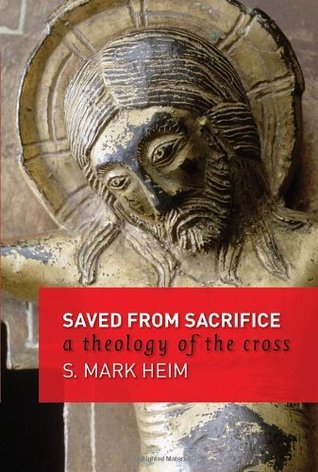More on this book
Kindle Notes & Highlights
The book of job is a failed sacrificial event where the victim inexplicably has the stage and is interrogating his persecutors, including the divine power appealed to as the foundation for sacrifice.
If they object to their persecution, they are defying God and so provide proof that the accusation is true. It is not at all a question of a punishment that fits the crime, but simply a requirement to associate the violence and the crime. Job refuses to provide this missing link.
The community's certainty of the guilt of the scapegoat needs no proof and wants no inquiry, as those questions could only undermine the unifying effects of the sacrifice.
after so much space has been given to the speeches of the friends, who have defended God at every turn and justified the violence against job as divinely mandated, we find this flat conclusion that they have not spoken the
truth. Job, who has called God his persecutor and denounced God's injustice and indifference, has spoken what is right. There is hardly a more amazing line in the Bible. Job has seemed to talk of two different Gods - an adversary God for whom he is only a sacrificial target, and a divine vindicator, the God who sides with victims. And we may say that Job has spoken what is
...more
Sacrificial religion assimilates the divine into the dynamics of human rivalry and revenge.
Job's address to God puts this in inescapable terms: Are you on their side or mine? In this struggle over the identity of God, God finally sides with job. Or perhaps we could say the Bible sides with job's God.
There would be no place for this book in the Bible if the God revealed in the Bible were not the God job sought.
Such substitution is a positive development, a way of curbing the violence that curbs violence, an attempt to stop human violence in a way that sheds no human blood. On the other hand, such practice is also a reinforcement and validation of the sacrificial mechanism it exhibited.
Ezekiel relays this extraordinary admission from God: "Moreover I gave them statutes that were not good and ordinances by which they could not live. I defiled them through their very gifts, in their offering up all their firstborn, in order that I might horrify them, so that they might know that I am the LORD" (Ezek. 20:25-26).
"To know God is to know the cause of the victim."27
Implicitly and explicitly, they saw a direct connection between the social victim and the ritual victim. The crowds that gathered in complete unity to kill the animal offerings looked strangely like the collective activity of the powerful in relation to the weak. Prophets see the scapegoat theme behind sacrificial practice and apply it to the social world around them.
What is proposed in this text would be a knowing acceptance of sacrifice for what it actually is. God knows and we know that it is the evil killing of an innocent, for our own benefit.30 This is the way the world works. We go ahead anyway. It's wrong, but useful. This is a God who has read Nietzsche, and agrees.
God is doing something different from what the persecutors are doing. The Isaiah text gives us many plain indications of this shift.
To exhibit violence is to run the risk of enflaming people's appetite for it. But to veil it under euphemism and mythology, to be piously silent before its sacred power, is to make its rule absolute.
Critics of Christianity attack the "violent God of the Old Testament" as the sociopathic cousin in an extended family of much better adjusted deities. But the offense of the Bible might be put the other way around. It suggests that the better-adjusted deities are (literally) a myth.
The Old Testament is an antimyth. It is thick with bodies, the voices of victims and threatened victims.
knowing that Jesus' death is perhaps the one thing in his life about which we are historically most certain, it says something interesting about us. We like to avert our eyes from victims.
Instead of covering up once again the collective ignorance of unanimous victimage, the four texts of the passion disclose it so thoroughly that, in the long run, the hiddenness of scapegoating is everywhere uncovered and its power to persuade gradually under- mined.7
The free, loving "necessity" that leads God to be willing to stand in the place of the scape-goat is that this is the way to unmask the sacrificial mechanism, to break its cycles of mythic reproduction, and to found human community on a nonsacrificial principle: solidarity with the victim, not unanimity against the victim.
The Gospel accounts are written in stereo, we might say.
"The stone that the builders rejected has become the cornerstone; this was the LORD'S doing, and it is amazing in our eyes."
The first clause is a succinct statement of the sacrificial mechanism.
Instead of building unity through the succession of dead victims, those who believe in Jesus are to keep his living example of vindication against sacrifice before them, and become themselves living stones, offering spiritual sacrifices without violence to build up a new kind of community.
A more extensive brief summary can be found in the following two articles: S. Mark Heim, "Christ Crucified: Why Does Jesus' Death Matter?" Christian Century 118, no. 8 (2001); S. Mark Heim, "Visible Victim: Christ's Death to End Sacrifice," Christian Century 118, no. 9 (2001).
Can we find harmony and peace with each other by persecuting a scapegoat, when we are aware that is what we are doing?


